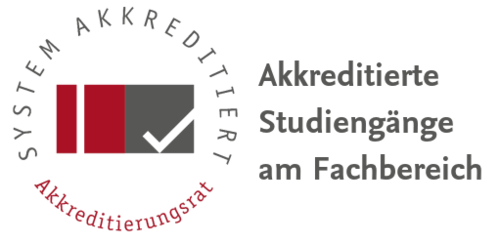30. Juni - 1. Juli 2025, Conference "Ancient Practical Expertise and Knowledge Practices", RFE Research Network
News from Jun 12, 2025
June 30 - July 1, 2025
Ancient Practical Expertise and Knowledge Practices:
Pragmatic texts, handbooks and compendia – cultural dynamics, developments and epistemic functions of practical knowledge.
RFE-network “Between Encyclopaedia and Epitome – Talmudic strategies of knowledge-making in the context of ancient medicine and sciences” (Eberhard Karls Universität Tübingen, University College London, Freie Universität Berlin)
Convenors:
Lennart Lehmhaus (Tübingen), Markham J. Geller (London), Cale Johnson (Berlin)
Venue:
Freie Universität Berlin
Fabeckstr. 23-25 (Holzlaube), room 2.2051
14195 Berlin
ALL PANELS ARE HYBRID, for in-person or virtual attendance, please RSVP before 26 June by writing to wissensgeschichte@geschkult.fu-berlin.de
This conference, explores practical expertise and pragmatic texts that convey medical and other (scientific) knowledge with a specific focus on its applicability and socio-cultural utility in Jewish, Christian, Muslim/Islamicate and other ancient or premodern traditions (Graeco-Roman, ancient Babylonian, Egyptian, Arabic, Irano-Persian, Coptic, Syriac, Armenian, Indian, Carolingian-medieval Latin etc.).
The ancient, late antique and medieval periods across the Mediterranean, the Middle East and beyond witnessed an agglomeration of knowledge in various fields. Alongside some broader “encyclopaedic” impulses – and at times opposed to them – one may notice a surge of (technical) handbooks (e.g. in agriculture, astronomy, medicine, pharmacology, astrology/astronomy, alchemy, animal husbandry, architecture, geography, mechanics, warfare, dream interpretation etc.) and compilations which aimed at both practitioners and interested lay people. Those included among others euporista; recipe collections (medicine, cooking, magic/incantations etc.), texts about astrology, calendars, divination and other matters.
The primarily non-theoretical compilations constitute important sources that still await further research and also cross-cultural comparison. Presentations will address the discursive structures, epistemic creativity of specific texts, their socio-cultural embeddedness and their value for comparative study. Another focus area will be various transfers of knowledge in and between ancient cultures or branches of expertise. On another level, contributions will focus on the materiality and the social dimensions of these pragmatic texts as well as on the practitioners and the usability of specific texts and items.
Download
Day 1: Monday, June 30
8:45-9:15 Welcome/Registration
9:15 Opening Remarks (Lennart Lehmhaus/Markham J. Geller)
Panel 1, 9:30 – 11:00
Chair: J. Cale Johnson, Director of the Institute for the History of Knowledge in the Ancient World, Freie Universität Berlin
Alessia Pilloni, Freie Universität Berlin, in-person
Planetary Combinations in Babylonian Astronomical Tables and Astrology
Angelo Gargiulo, Ghent University, in-person
From Hesiod to Byzantium: the Unbroken Continuity of Parapegmata
11:00 Break
Panel 2, 11:45 – 13:15
Chair: Jacqueline Vayntrub, Yale University, New Haven
Gideon Bohak, Tel Aviv University (ERC project “Jewish Library in Late Antiquity”), Würzburg University (MagEIA-Centre), ZOOM
The Pishra de-Rabbi Hanina ben Dosa: A Babylonian Jewish Anti-Witchcraft Spell in Medieval and Modern Manuscripts
Elyze Zomer, Eberhard Karls Universität Tübingen, in-person
Dreaming Without Borders. Dreams and Dreambooks from a Cross-cultural Perspective in Early Antiquity
13:15 LUNCH (by invitation)
Panel 3, 15:00 – 16:30
Chair: Katja Krause, Max-Planck-Institut für Wissenschaftsgeschichte/Technische Universität Berlin
Silke Diederich, Universität zu Köln (Cologne), ZOOM
The Tabula Peutingeriana – An Ancient Route Map for Travel Planning?
Marco Formisano, Ghent University, in-person
What is a Sustainable Text? Some Late Latin Examples
16:30 BREAK
Panel 4, 17:00 -18:30
Chair: Isabel Toral, Freie Universität Berlin
Leonie Böttiger, Max-Planck-Institut für Wissenschaftsgeschichte, Berlin, in-person
Bees, Birds, and Bathhouses: Materialities of Premodern Arabic Craft Recipes
Sousan Razaei, Freie Universität Berlin, in-person
Healing in Mandaeism and its connection to writing
18:30 Final Discussion (Day 1)
19:15/19:30 Dinner (by invitation)
Day 2: Tuesday, July 1
Panel 5,09:30 – 11:00
Chair: Reimund Leicht, Freie Universität Berlin
Claire Burridge, Universitetet i Oslo, in-person
Compiling Knowledge in the Early Medieval Latin West: The Addition of Practical Medical Texts to Non-Medical, Technical Manuscripts
Lennart Lehmhaus, Eberhard Karls Universität Tübingen, in-person
Practitioners, Peer-Medicine and Prooftexts – Talmudic Discourse on Healing and Health
11:00 Break
Panel 6, 11:45 - 13:15
Chair: Anuj Misra, Max-Planck-Institut für Wissenschaftsgeschichte/Freie Universität Berlin
Magdaléna Jánošíková, Universiteit van Amsterdam, in-person
Textualizing Medical Knowledge in Early Modern Europe and the Place of Jewish Physicians in the Medical Archive and Histories
Anthony Cerulli, University of Wisconsin, Madison, in-person
To Treat Ailing Bodies, Read Medical Texts
13:15 LUNCH (by invitation)
Panel 7, 15:00 – 16:30
Chair: Florentina Badalanova Geller, Royal Anthroplogical Institute / UC London
Anna Cherkashina, Tel Aviv University (ERC project “Jewish Library in Late Antiquity”), ZOOM
Indian and Iranian Connections in Newly Identified Judaeo-Syriac Medical Fragments from the Cairo Genizah
Thomas Benfey, Eberhard Karls Universität Tübingen, in-person
Aḥūdemmeh Anṭīpaṭrōs Revisited: The Movement of Practical (?) Medical Knowledge between Greek, Syriac, and Hebrew in the Premodern Middle East
16:30 BREAK
Panel 8, 17:00 – 18:30
Chair: Shabo Talay, Freie Universität Berlin
Matteo Martelli, Università di Bologna, ZOOM
Zosimus of Panopolis and His Syriac Compendium on Alchemy
Markham J. Geller, University College London, in-person
Talmudic Recipes in Their Transcultural and Multilingual Contexts
18:30 Final Discussion (Day 2)
Ca. 19:15/19:30 Dinner (by invitation)

